Reflection time.
I started full-time work at the end of 2011 and discovered the concept of financial independence (FI) sometime in 2012 after reading Rich Dad Poor Dad by Robert Kiyosaki.
That book (and the concept of FI) changed my life.
It wasn’t until a year after reading that book that I stumbled across Mr Money Mustache and the FIRE movement, which again, changed my life.
10 years. That’s how long I’ve been chipping away at this goal. And a lot can change ya know. My mindset, goals, strategy, desires, priorities have all shifted throughout the last decade. I’ve been thinking a lot about the lessons I’ve learned throughout the journey. What worked? What didn’t? What’s the point of it all?
Let’s get it.
1. The ultimate goal is to be happy. Never lose sight of this
We’re starting this list with the most important lesson.
It’s a bit philosophical but it’s really important and it sets the tone for everything we do. Have you ever asked yourself the following question and really mulled it over?
“What do I want in life?”
Now, there are going to be thousands of different answers to that questions depending on who you’re speaking to but the common denominator will always be the same… a desire to feel joy/to be happy.
Going snowboarding is pretty obvious. That’s fun as hell! But going to the gym 3 times a week and lifting heavy shit is… less obvious. One involves instant gratification whereas the other is delayed by a series of uncomfortable painful sessions.
The driver and end result for both activities is still the same. To be happy.
This driver for happiness is behind nearly everything we do. But figuring out what sort of life is going to be fulfilling and bring us purpose is a personal journey. The sooner you identify the key drivers of your happiness, the quicker you can start to plan out your ideal life.
I know life sometimes feels really complicated and stressful but at the end of the day, we’re still just another animal on Earth whose needs and desires haven’t changed that much over the ~50,000 years we’ve been roaming around.
In 1943 an American psychologist called Abraham Maslow published a paper called “A Theory of Human Motivation” which included the now very famous Maslow’s hierarchy of needs.
This hierarchy of needs is universal and transcends generations.
A spice merchant in Ancient Egypt 3100 BC would still need to cover each level on the pyramid (pun intended).
Start from the bottom and work your way up and don’t skip over the physiological needs either.
You’d be surprised how many people would feel 10X better by just getting a decent amount of sleep each night and eating the right foods.
How FIRE plays a part in helping you achieve a level of happiness can be explained better in lesson 2.
2. Find your why of FI
One of the biggest mistakes I have personally made and that I see all the time is people thinking that reaching financial independence will make them happy.
Spoiler alert. It doesn’t.
You need to find your ‘why’. Why do you want to reach FI? What will reaching FI mean for you? How will it make you happy?
Speaking from personal experience, FIRE resonated with me because whilst I quite enjoyed my job, I resented the fact that I was ‘stuck’ there 5 days a week. I didn’t like that feeling. And before I knew that FIRE was even a thing, I thought I was going to be in the cubicle for 40+ years 🤮
FIRE for me was about gaining more of the most precious resource we all have. Our time!
Free time is crucial for satisfying the top level of Maslow’s pyramid.
Money is just a man-made abstraction that doesn’t have any intrinsic value. We can leverage money to create more time and freedom in our lives. The most important part is knowing how to use this extra time and freedom to enrich our lives. Having a rock-solid ‘why of FI’ will help tremendously throughout your journey.
3. Master behaviours, not spreadsheets
This lesson took me many years to learn but it’s a goodie.
At the start of my journey, I was really attracted to the math and statistical side of FIRE. I loved reading about the Mad Fientist’s tax strategies (even though they were US based), MMM’s shockingly simple math behind early retirement and how the trinity study modelled over 80 years of data to come up with the 4% rule.
I used to seriously whip out the calculator on my phone at all hours of the night to crunch some number because I was obsessing over a 0.07% difference in management fees lol 😅.
But the further down the FIRE rabbit hole I traverse, the more I realise that spreadsheets, modelling and the math behind money management all meant diddly squat if your emotions and psychological makeup are not equipped to stay the course throughout your journey.
I’m not saying the numbers don’t matter, because they most definitely do. But our behaviours matter more.
“Financial success is not a hard science. It’s a soft skill, where how you behave is more important than what you know”
– Morgan Housel
There’s a great story that illustrates this point perfectly. In the intro of one of my favourite books, ‘The Psychology of Money’ by Morgan Housel. Morgan compares the stark contrast between an American Janitor called Ronald Read with a Harvard-educated Merrill Lynch executive named Richard Fuscone.
From his wiki page:
Ronald James Read (October 23, 1921 – June 2, 2014) was an American philanthropist, investor, janitor, and gas station attendant. Read grew up in Dummerston, Vermont, in an impoverished farming household. He walked or hitchhiked 6.4 km daily to his high school and was the first high school graduate in his family.
Read repaired cars at a gas station for 25 years and was a janitor at JCPenny for 17 years. He purchased a 2 bedroom house for $12K in 1959 and lived there for the rest of his life.
Friends of Read have been on record saying that he didn’t really get up to much. Some said his hobby was wood chopping and he lived a very low key life.
Read died in 2014 at the ripe old age of 92 which is where the plot thickens… Read made international news when he left over $6,000,000 (USD) to his local hospital and library. He also left over $2,000,000 to his stepkids too 🤯.
Read’s friends were dumbfounded. Where did he get all that money from?
Friends and family went looking for answers but they discovered there was no secret.
No lottery wins.
No hidden inheritance.
No hidden high paying secret spy job that he’d been keeping under wraps.
Read simply spent less than he earned and invested the rest in blue-chip stocks. The power of compound interest over decades did its thing and his low-income modest lifestyle managed to create a snowball worth more than $8M (USD) 🤯🤯🤯.
Richard Fuscone was in the news a few months before the passing of Ronald Read for very different reasons.
Fuscone is basically the polar opposite of Read.
To say he’s well educated is putting it lightly. Check this out for a resume
I mean damn! That’s some serious alumni. And for those who don’t know, the University of Chicago offers one of the most prestigious MBA programs in the world. We’re talking about the upper echelon of prestigious education here.
Fuscone was a high flying executive who retired in his 40’s to pursue philanthropy and was once included in a “40 under 40” list of successful businesspeople. Fuscone got into financial difficulty in the mid-2000s after he borrowed heavily to expand his 18,000-square foot home that had 11 bathrooms, two elevators, two pools, seven garages, and cost more than $90,000 a month to maintain.
Then the 2008 financial crisis hit.
High levels of debt coupled with illiquid assets left Fuscone bankrupt.
A few months before Ronald Read passed and left his fortune to charity, Richard Fuscone’s home was sold in a foreclosure auction for 75% less than an insurance company figured it was worth… ouch!
Ronald Read was patient, Richard Fuscone was greedy. That’s all it took to overcome the enormous education and experience gap between the two.
So what’s the moral of the story?
It’s not about how smart you are, it’s about how you behave.
4. Getting wealthy is simple. Don’t overthink it
“Life is really simple, but we insist on making it complicated.”
– Confucius
Almost every single wealth-building strategy can be boiled down to three steps:
- Spend less than you earn
- Invest the surplus
- Wait
That’s it… seriously.
Now there’s an absolute chasm between ‘get rich quick’ schemes and long term investing but those three principles hold true 99% of the time. How you invest and what you invest in doesn’t particularly matter. As long as you’re outpacing inflation and have strong conviction in your investments you should be moving towards financial independence.
Fidelity Investments is a multinational financial services corporation based in Boston, Massachusetts. An interesting discovery was made when a customer account audit revealed that the best investors in their database were either dead or inactive.
How could that possibly be?
How could someone that’s not adjusting their portfolio to the macro and micro economic news, outperform savvy investors with all the latest up to date data at their fingertips?
Well, it turns out that when it comes to investing… less is more.
Which is very unintuitive and goes against basic logic.
See the thing is, almost no one can beat the market over the long term. But people (myself included) constantly fall for the trap of trying to add complex financial instruments to somehow gain an advantage over ‘unsophisticated’ investors. I’ve always been raised that you need to put in the effort to reap a reward. You have to work hard to get anything in life worth having. This is true for most things… just not when it comes to investing.
I created and now invest through a trust fund because I associated its complexity and mystic with higher returns.
I thought I needed to do something different. I needed to outwork others to have a good return.
Choosing an ordinary index fund and adding to it each month without doing anything else just felt…lazy lol. I had all this pent up excitement after discovering FIRE and I wanted to channel this energy into the journey. I wanted to work my ass off so I could reach FI as quickly as possible and I felt like boring lazy index investing is only for people who aren’t willing to put in the work. It’s taken me years to accept that not only is this approach perfectly fine, but it’s also statically the most optimal choice most investors can make.
Keeping it simple also frees you up to concentrate on what’s really important in life which ties into the first lesson, to be happy.
Complexity has the potential to steal your most precious resources; time and energy.
Money is the slave that works for us, not the other way around.
5. What’s measured is managed
If I could give only one tip to anyone looking to be better with their money, it would be to start tracking your expenses.
That’s it.
You don’t even have to do anything else. I promise you that you’ll save money and optimise your expenses within the very first session. You might think that you know what you spend money on but I’ll bet the house that the first time you analyse three months of expenses, you’ll be surprised.
This lesson falls under the umbrella of Lesson 3 ‘Master behaviour, not spreadsheets’. It’s been well documented that keeping track of any metric and reviewing it regularly has a psychological effect on humans that can help us improve a focus area.
If a sprinter wants to be faster, they’ll keep a record of how fast they run.
If a presidential candidate wants to become the president, they’ll record and analyse poll data with their team.
If Tesla wants to design self-driving cars, they’ll create, test and record different algorithms continuously and keep track of what did and didn’t work.
I think you get the idea.
What’s measured is managed!
And if you’re not measuring the most fundamental aspect of FIRE, you won’t be able to manage it effectively. Plenty of people can still reach FI without ever tracking their expenses but I know first-hand that measuring how much you’re spending and what your spending it on has a lot of positive psychological effects.
Some of the positives of tracking are:
- You regularly review where your precious dollars are being allocated to each month. Think back to lesson 1. ‘The ultimate goal is to be happy’. Is the stuff you’re buying ultimately making you happy?
- You can accurately calculate your current FIRE number? Guessing how much you spend each year to maintain your current lifestyle can create stress and anxiety when the time comes to retire. You’ll second guess yourself. Even though things can and will change throughout your life, if you’ve been tracking your expenses for a few years you’ll have a much better idea of what size portfolio you’ll need to retire.
- It’s super easy to trim the fat. Unused memberships and subscription services can sometimes fly under the radar. Reviewing expenses bring this wastage front and centre.
But be warned… overdoing this area can actually have negative consequences.
I used to be one of the worlds biggest tightasses (still pretty tight compared to most ‘normal’ people haha) but what I’ve found through the last decade of managing money is that the majority of people will find great success if they focus on the big four areas.
- Housing
- Transport
- Food/drinks (including alcohol)
- Holidays
Try to optimise these big areas and don’t kill yourself for paying for a haircut.
I’d say that the top one (housing) is probably the most important. Buying a huge house at a young age can stunt your wealth creation potential. Spending 50+% of your paycheck on rent has the same effect. You want to get your snowball up and running asap and let the compound interest do the heavy lifting over many years/decades.
If you optimise those big four areas to a point where you’re living a great life whilst having a decent savings rate it’s only a matter of time before you hit FIRE 🎉.
Ultimately, this lesson is super effective at improving your behaviours when it comes to money management.
6. Income potential is often overlooked
Over the last decade, I’ve met and spoken to a lot of people who have reached financial independence and there seems to be a common theme.
- They are good savers
- They have a higher than average income
The funny thing is that a lot of these people are actually below average investors. I heard all sorts of stories about how they might have lost money on a development, got swindled by a pyramid scheme or lost it all on a speculative stock. Yet they seem to reach FI decades earlier than most after eventually figuring out some form of investment that works for them.
The bulk of their wealth comes from a healthy savings rate powered by a high income.
For the first 7 or so years on my journey towards FI, I focussed solely on saving a whole lot of money and investing it in both real estate and stocks.
It wasn’t until I moved overseas in 2019 and more than doubled my hourly rate did I truly appreciate the power of earning more money.
I mean it’s pretty obvious, isn’t it?
The more you earn the more you can save and reach FI quicker. But for some reason, I always prioritised saving more and reading the same investing strategies over and over again making little tweaks here and there.
Having a high savings rate is really important. I reckon we managed to optimise our expenses after 1 or two years at most. After that, it’s pretty much been on autopilot. We have a pretty good idea about what brings us joy and where our dollars go.
I’ve spent way too long (especially at the start) obsessing over the ‘investing’ part of the FIRE equation. There are soooooooo many articles, videos, books, podcasts etc. that dive into all sorts of whizz-bang investing strategies that it can be confusing as hell.
It’s sorta like when you go to the Cheesecake Factory. Their menu is so bloody big and confusing that it can be overwhelming. I’ll try to read absolutely everything because I don’t want to order a meal and then have food envy because something better was further down the menu 😂. This is what’s known as analysis paralysis and a lot of people can fall prey to it (it personally took me years of reading about the stock market before taking the plunge).
It’s natural to feel like you need to know absolutely everything before dropping your money into the markets. But the truth is that we all make mistakes and the most basic concept of investing is buying things (real estate, stocks, precious metals, bonds etc.) that make you money. Don’t stress too much about building the perfect portfolio because I’m telling you it doesn’t exist.
Index investing appeals to so many people because it’s passive, diversified, low cost and provides a great return with little effort. Don’t overthink it. Work out a portfolio that you have strong conviction in and one that will allow you to sleep at night. Save your money and keep adding to the portfolio regularly.
If you still have time and energy to commit to FIRE after your expenses are under control and you’re happy with your investing strategy, I’d seriously start to look to increase your income.
High savings + high income + below-average investments
is better than
High savings + below-average income + above-average investments
Obviously, it does depend on how epic your investment returns are but generally the above is true from what I’ve personally experienced and seen over the last decade.
There are heaps of ways you can increase your income. I wrote about a few of them in this article here.
7. Compound interest takes years to notice
I learnt about the power of compound interest pretty early. There’s that famous story about two colleagues that’s told 100 different ways but it always illustrates the same point. Investing early and taking advantage of compound interest pays off in the long run.
This little graphic is one example.
I’d like to think most people in the FIRE community have come across this (or something similar) before.
But most people (myself included) have a hard time truly appreciating the magnitude of compound interest and it doesn’t start to feel real until you’re near the end of your journey. There’s something about exponential growth that makes it difficult to grasp from an emotional point of view even when we understand the math. I think it has to do with most other things in life being linear. We do basic arithmetic almost every day in our lives but I don’t know anyone who can compute exponential growth without a calculator.
If we need half a dozen eggs for a recipe and know we already have 2 at home, that’s a simple subtraction problem that’s easy to think about on the fly and makes sense. If we choose to buy a car worth $10K instead of $15K. That’s an obvious savings of $5K which makes it easy to immediately appreciate on the spot.
But it’s hard sometimes to come to grips with putting away large sums of money now so the future you in 10-30 years can live a better life.
Here’s one of my favourite examples of exponential growth that you can play with your friends.
The story of the monthly coins.
If I gave you $1 each day in the month of January, how much money would you have at the end of the month?
Most people would be quick to shout $31 right.
But suppose I gave you $1 on the first day of January and double it every day until the end of the month ($2 on the second day, $4 on the third and so on), without cheating, try to have a guess in your head how much money you would have at the end of the month.
Take a few seconds to think about it and keep a mental note.
….
….
….
The answer is $2.1 billion dollars. That’s a billion… with a B 😱
Try this example with your friends to see what number they guess. 99% of the time they won’t get anywhere near the correct answer.
I use the example to illustrate the point that compound interest is not intuitive to grasp and it really only starts to take off in the later years. Speaking from experience, I really noticed compound interest once we had around $400K+ invested and our FIRE number is $1.25M for context.
Before that, it feels like you’re doing all the heavy lifting yourself through savings (which is pretty much what’s happening).
But boy oh boy it’s an amazing feeling when the freight train starts to pick up steam and suddenly your investments are making more money than you can save each month. After that, there’s no stopping it and you’ll feel like you’re almost cheating as you race towards the finish line.
8. Most people are really after semi-retirement
Every single financially independent person I’ve ever met, read about or listened to still ‘works’ and makes money outside their investments one way or another.
I’ve added talking marks to the letter ‘work’ because it’s not really traditional work but people can get really anal when it comes to the word retire. I’ve always interpreted RE (retire early) part of FIRE as the moment you quit your cubicle/wage slave job and pursue meaningful work that brings you purpose.
But this can be confusing because not everyone has something they’re super passionate about. There’s a large portion of the community that really likes the social aspect and comradery of their normal day job but just want a little bit more free time in the week to get stuff done and enjoy life.
Based on the emails I’ve been receiving for the last 7 or so years I’ve come to the following conclusion. Most people in the FIRE community are really just looking to work 2-3 days a week and maintain their current lifestyle with some passive income to cover the rest/set them up for retirement in their golden years.
And as someone who is currently only working 3 days a week, I must say that I’m becoming more convinced that semi-retirement is the sweet spot for the bulk of the community too.
Full financial independence is great and it’s what we should be aiming for later on in life, but building up a portfolio that kicks off enough passive income to free up one or two days a week can have astonishing results.
And the best part about compound interest is that the momentum you build up early on in the journey only gets stronger and can carry you all the way to full fledge FI without you needing to add to your portfolio after a certain point.
This concept is known as Coast FI or Flamingo FI and the end result is the same. Full financial independence.
But if you drop down to semi-retirement during your journey you’ll obviously not have as much money to contribute to your portfolio and won’t reach FI as fast.
If you want to know more about coast FIRE I’d highly recommend you check out this article at the money flamingo blog (Aussie specific too!).
The odds of someone never working and making any sort of income outside of their portfolio ever again after reaching FIRE is incredibly low. I’ve been saying this for a few years now but the 4% rule is over-conservative in my book. Putting aside the fact that the author of the 4% rule has increased it to 5%, any additional income after you’ve reached FI completely blows out the modelling.
Let me give an example.
Our FIRE number is $1.25M which will generate $50K per year based on the 4% rule.
Let’s assume that we get to the $1.25M, declare FIRE but decide to both work 1 day a week for 8 hours at $30 an hour.
Would you believe that our combined take-home income would be ~$25K a year? That’s half of what we need to bloody live on!
The portfolio could easily cover the rest and here’s the amazing part. Because we wouldn’t need to be drawing down 4% of the portfolio, it could compound away for longer at the higher amount.
Here’s what half of the portfolio ($625K), if left alone, could potentially grow to given an 8% return after 10 years.
~$1.35M is more than our original FIRE number!
And it’s really important to realise that we only worked one 8 hour day at $30 an hour in this example. You could imagine how dramatic the modelling changes if you worked an extra day or charged a higher hourly rate.
There are two main points here.
- You’re almost certainly going to be earning money post FIRE
- The 4% assume no extra income ever. This is extremely unlikely if you reach FIRE in your 20’s, 30’s, 40’s or even maybe 50’s.
9. Find your ‘enough’
Joseph Heller, an important and funny writer
now dead,
and I were at a party given by a billionaire
on Shelter Island.
I said, “Joe, how does it make you feel
to know that our host only yesterday
may have made more money
than your novel ‘Catch-22’
has earned in its entire history?”
And Joe said, “I’ve got something he can never have.”
And I said, “What on earth could that be, Joe?”
And Joe said, “The knowledge that I’ve got enough.”— A poem for The New Yorker in May of 2005 by Kurt Vonnegut
I honestly think there’s something in our DNA as humans to always want more.
It has to be some sort of evolutionary trait right.
Imagine two homo sapiens coming across an enormous fruit tree bearing 50 ripe Apples.
The first human decides to only eat enough to be full and then leaves.
The second human gorges themselves and then picks and carries as many as they can hold back to camp with no consideration of others.
Which personality traits do you think has the better chance of surviving and passing on their genes to the next generation? As unfortunate as it is, selfishness is rewarded in the animal kingdom. I know it’s hard to imagine with all our fancy pants technology and civilisation, but we’re not actually that far removed from our prehistoric ancestors and evolution hasn’t yet caught up to deal with the current situation we find ourselves in.
Most of us are hard-wired to always want more.
But you’ll never become FI if your desires and wants continue to increase forever.
Think back to lesson one “The goal is to be happy”.
If you desire something and you don’t have it, this usually results in a feeling of unhappiness. And there are only two ways to fix it.
- You work hard and get what you want.
- You find happiness elsewhere and stop wanting it.
Depending on how exorbitant your wants and desires are, option 1 could mean many decades climbing the corporate ladder working 70+ hours weeks to fund your:
- 3,000sq m Toorak mansion
- 6 beds, 5 bathroom holiday house in Byron Bay
- 5 cars
- 3 jet ski’s
- And so on
Now I don’t want to be judgemental here. If you really want all those things and think the work required is worth it. Sweet. Go for it. Everyone is different.
But if you’re reading this article, odds are that you’re more attracted to the idea of living a simple yet great life that prioritises freedom, autonomy, health, relationships and ultimately happiness.
Figuring out what your ‘enough’ is takes a long time. This is partly because our wants and desires evolve as we get older and our circumstances change.
I for example, never really put too much value in travelling before 2019. I’d been on a few trips here and there and whilst it was good fun, I used to think that international travel was insanely expensive and overrated. Travelling around the world and living in the UK for 2 years completely changed my outlook on a lot of things and broadened my horizons. I now consider travelling to be part of our lifestyle and something we will need to factor into our numbers.
And even though I think a little bit of lifestyle inflation is perfectly normal and healthy, you’ll never have peace of mind until you discover your ‘enough’.
If you don’t figure it out, you’ll always be wanting more.
10. We’re all dealt a different hand in the game of life
There’s a quote that I can’t seem to find that loosely goes like this.
A CEO was perfectly happy with their $1M bonus until they found out a competitor CEO received $100 more
Comparisons. We’re all guilty of making them.
And the messed up part is sometimes we were happy until we see what someone else has.
It happens all the time and is part of the reason I’ve disconnected all of my social media accounts.
Practising the art of gratitude can be really helpful to remind yourself of all the great things in your life. But we’re humans and I’ve fallen victim to unrealistic comparisons a bunch of times. It’s perfectly natural to stumble across someone who you may have gone to school with and be jealous of the life they’re living now.
What I’ve come to realise after hearing from literally thousands of Aussies on their way to FI is that there can be a gigantic gap between peers within the same cohort. I’m talking about the advantages and disadvantages between two people who on surface value seem to be pretty equal.
There’s a great book called Outliers by Malcolm Gladwell that explains just how incredible one little advantage early on in someone’s life can completely change their trajectory.
Did you know that 40% of the best hockey players in Canada are born between January and March?
This is no coincidence. It turns out that in minor league hockey, children are grouped by birth year and players born in January are, on average, bigger and taller than December-born players.
This seemingly unimportant attribute gives players born in the first months of the year a head start that turns into a lifelong advantage.
That one little leg up can have the following flow-on effects:
- They are bigger and stronger than their peers which makes hockey easy for them
- They are noticed by coaches and identified as a good player. Extra coaching or special treatment may be given
- They will most likely be chosen to represent their squad team which means more playing time against a higher level of competition and access to better coaching
- They continue to get extra playing time against elite competition with the best coaches in the country year after year
These sorts of advantages happen all the time and compound throughout one’s life.
The same is equally true for disadvantages.
But it’s really hard to know what cards a person has been dealt even if you know them quite well. And it’s almost impossible when reading a stranger’s blog or listening to a guest on a podcast.
The goal of FI is a mastery of money that’s a personal journey.
A little bit of healthy competition can be good but never feel inadequate when you come across someone similar who seems to have it all figured out. They may have been dealt two aces.
The reverse is also true.
We have no idea what has happened in someone’s life that has influenced the position they’re in now.
In summary, compete against the person in the mirror.
Wake up each day trying to be a better version of yourself.
Because…
“Comparison Is the Thief of Joy”
— Theodore Roosevelt
That’s a wrap! 10 the biggest lessons I’ve learned over the past 10 years pursuing FI!
I’d love to know what was your favourite lessons in the comment section below 🙂
As always,
Spark that 🔥





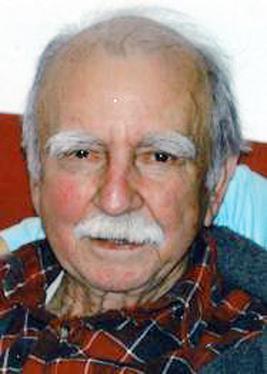
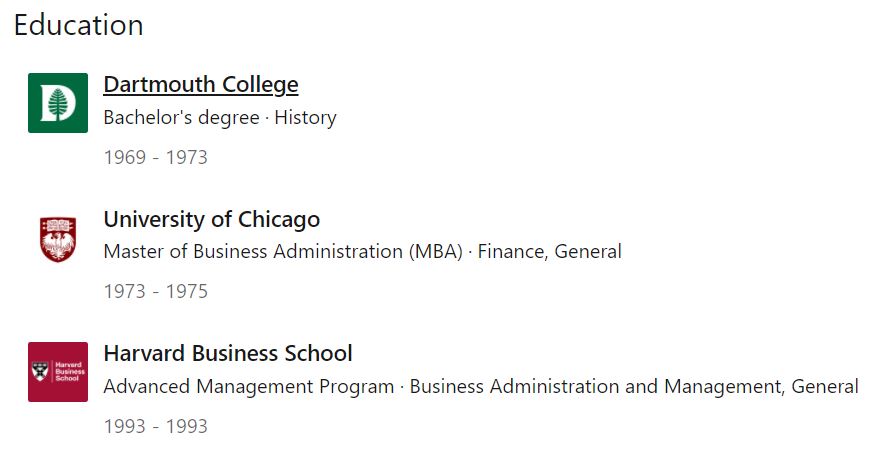

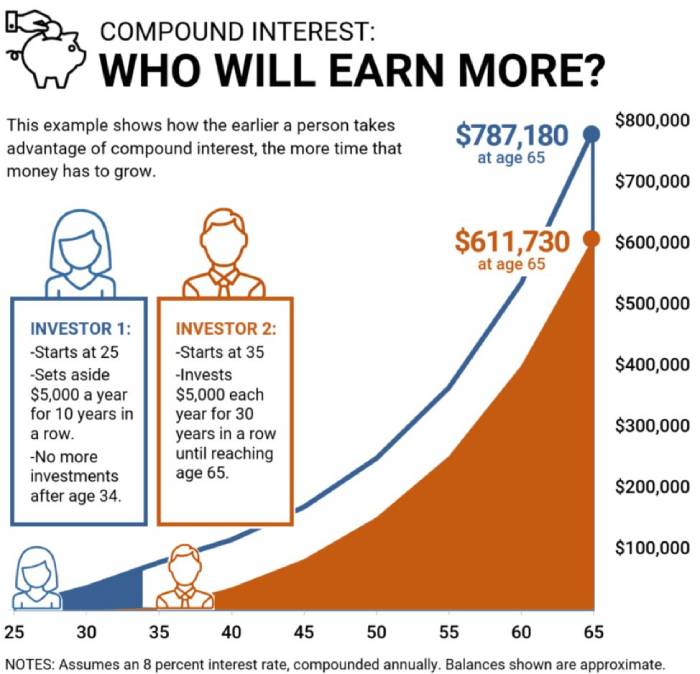
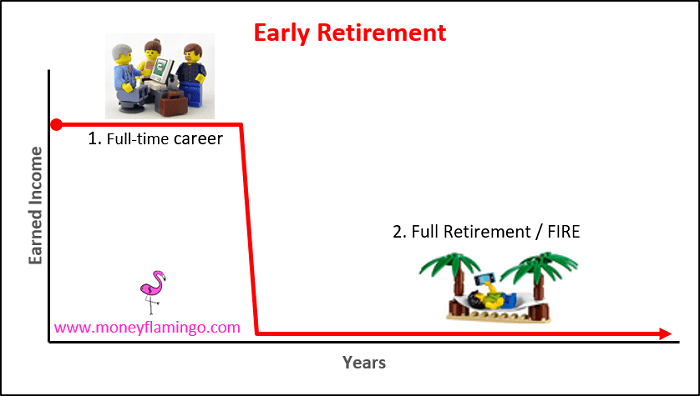
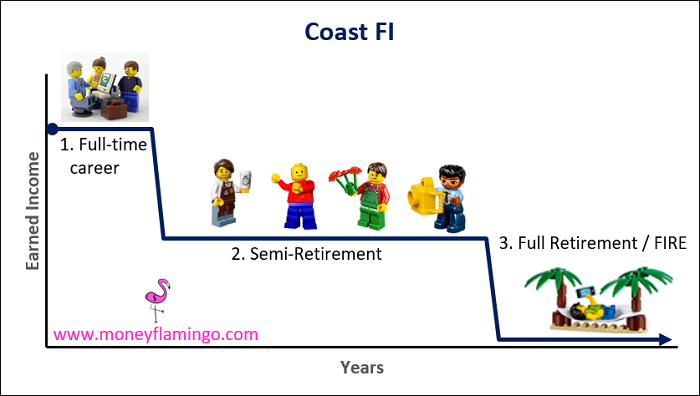
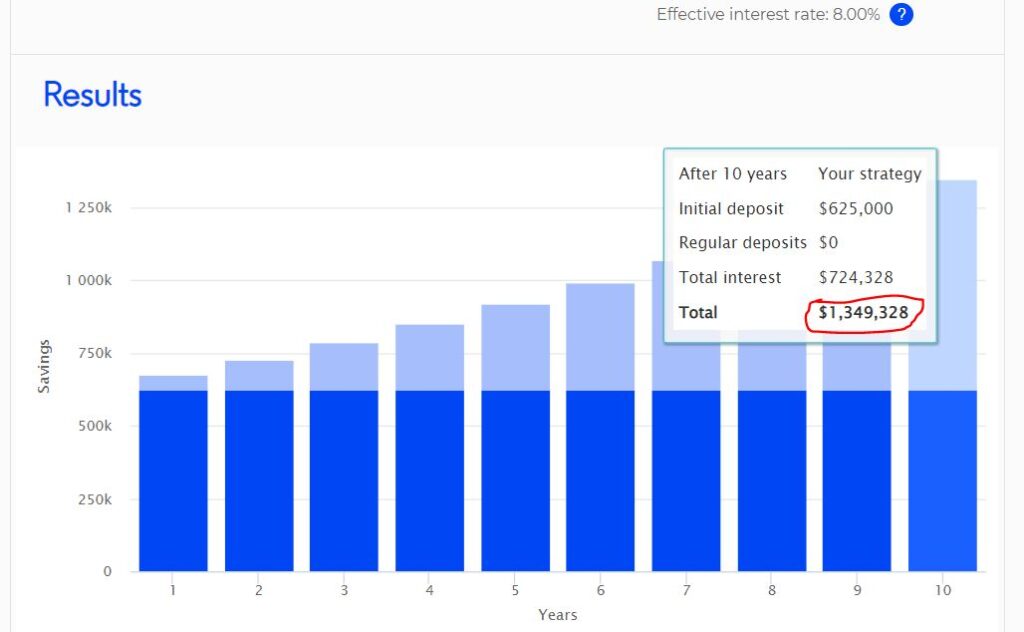




Mate, beautiful post and great summary of the lessons you’ve picked up over the years.
From the list, what resonates with me the most and I feel are underappreciated:
3. Behaviour over spreadsheets
8. Semi-FI suits most ppl and is way faster to achieve
9. ‘Enough’. Too many people are crippled by the fear of not having enough, wanting more, or are too damn comfortable to pull the plug and actually cash in on the freedom they’ve earned.
Beastly article, very nice work 🙂
Totally agree Dave. These 3 lessons stood out to me as well. I haven’t really seen them too often in other “top 10” type FIRE lists. The one that resonated with me the most was Semi-FI / Semi-retirement being good for most. Totally true, and a great way to “cash in” on most of the FI attitude and lifestyle without having to go full retirement. 🍻
Well done AFB. Cranking out the kick ass original content as always! 🧨
I especially loved on the pod how you described analysis paralysis as equivalent to reading all of the items on the Cheesecake Factory menu! That was awesome. Is it American, Japanese, Italian… what kind of cuisine is it?!? Classic. Good chuckle outta that one. 🤣
😁 my wife loves the Cheese Factory but the menu is a mess haha.
I appreciate the love Papa 🙂
Great post. I too have learned that less is more. And boring index investing can lead to riches. When your not busy trying to get rich quick, you will get rich slow.
Once I hit Coast FIRE 🔥 at $300k+ it was all about finding my happy place and living in a mansion wasn’t it, it was having more time and freedom.
Cheers!
My wife and I are about 18 months from our FI number we are very good savers but have never really tracked expenses, it’s great advice. Rule 4 Don’t overthink it is the one that resonates. Thanks for the article, very enjoyable.
Loved this!
On my way to FI within the next 2-3 years (39 now) my exponential growth tipping point was reached by selling my $1.5m house, taking out the $800,000 in equity and moving into my holiday caravan, downsizing and using the dormant asset wealth locked in my home to invest in a $4.3m project with $7.5m likely output on my own. It’s scary as hell but I’m so proud I’m having a go. Even better my world suddenly got bigger when my house got smaller and my saving grew without me even noticing.
I assume when I look back if successful and not bankrupt and living as a fugitive in Bali I will say my top tip would be:
1. Back yourself
2. Do the research (best is the enemy of good) do due diligence to know what to ask and then ask the experts, you don’t and won’t ever know all the answers
3. To your own point take time to remind yourself why!
Watch this space as I hope it all works out but I plan to enjoy the journey.
Thank you for the article. Starting my spending spreadsheet or app tracker research now!
Great tips Nat!
Backing yourself is such a good one. I’ve gotten jobs I had no right getting by just backing myself and putting it all out there. Confidence is key!
Much appreciated bro!
DO you have any tips for tracking expenses? Do you do this by looking over your credit card bill and allocating outgoings to areas or have you automated this somehow?
Thomas have a look at UP bank… was looking at tracking things a little more closely, but their app does it better than anything I could do with a spreadsheet and in real time.
Reality is number 5 worked better than any spreadsheet or app tracking… by having pay go in to one bank account and then tipping my budget regularly in to a separate account far easier for wife and I to modify behaviour of spending a little less or treating ourselves a little more.
Great article AFB.
The two most crucial things are to spend less than you earn and increase your income.
Let me share a little about my investment story.
Started investing age 26 – purchased 1st property. 2 bed unit in need of work. All my friends were travelling the world and generally having a good time.
Fast forward to 2022, age 45 and now I own 11 properties (last one purchased in 2017 – earning $136k p.a.). In 5 years l will be debt free. Most my friends are now starting to invest but quite frankly too late!
What comes next not too sure. I probably wont retire, too young and hard to give up $300k per year job. My wife has already told me she will retire in 5 years and thats fine. It is nice to know l too will be able to pack it all in in 5 years if l dont enjoy what l’m doing though.
I too have made investment mistakes along the way. I would be a few steps closer to being debt free and my portfolio would be worth a lot more but the main thing is to stick to your guns. Like you say compounding does the heavy lifting now. I may earn $300k p.a. now but my portfolio grows over $600k p.a.
If only people understood making sacrifices when you are young reap rewards when you get older. Its as simple as that!
It’s never too late to start investing Ari!
But yes, being a little bit more mindful of money at a young age can have enormous benefits later on in life. This stuff should be taught at school IMO.
Thanks for sharing your story 🙂
Thomas,
I put everything through my credit card and then every day or so I log the expenses onto a ‘no spend days’ chart. (I’ve blogged about it… it’s a system that works for me.) At the end of every month, I whip through it and log each entry onto a yearly expenses chart, which has different categories. It’s interesting, now that I’m about 5 years in, to see how the categories either stay the same or change year to year.
This was a real help when I was wondering whether to retire in 2020. I knew down to the dollar how much I needed to keep this place running and how much I wanted to have as extra discretional spending on top. Made the decision much easier.
(Spoiler alert: I pulled the pin. Never been happier.)
Hi Thomas,
A lot of people use and recommend YNAB (You Need A Budget), ive not used it so can’t comment on how good it is.
There is a good Google sheets template floating around the reddit sub AusFinance (www.reddit.com/r/ausfinance) – I couldnt find it searching on my phone but of you search budget, tracker, or expense something will pop up
Also check out https://moneysmart.gov.au/budgeting/budget-planner
I use Excel myself and track/update it weekly or a couple times a month, there is a good YouTube explanation on how to set up a spreadsheet by Money With Dan (link https://m.youtube.com/channel/UCk7-cU04xe65kfTx5AGwr9A) good place to start and build what you need/want from there
Have a look at this one. https://www.pocketsmith.com/
We use a website called Pocketbook. It pulls in our transactions automatically categories them. I love adding notes to weird transactions and looking at monthly expenses. I’ve got it down to a fine art these days. Maybe I should make a video about it 🤔
I just looked up Pocketbook and it says it was closed down 5 August 2022?
You’re unfortunately correct. I’ve been messing around with Picture Wealth
I am using Frollo. But all our expenditure are done through our CC so that is easily tracked. What I like about the app is that it also sync with my Super and Commsec accounts so it gives me a better picture on my networth.
Thanks mate, love your work 🙂 Been awesome seeing your journey
TYSM Ken 🙂
Great reflections! Thanks for sharing these insights and as a long term watcher on your blog it’s been an inspiring journey. Congrats! And I totally agree it’s a compete against yourself not others.
💯 MDog!
Haha! Maybe I’m the only FI/RE person who’s retired and has absolutely no desire to work ever again.
After decades of teaching, which involves having every minute of every work day scheduled, I’m loving the freedom of having total control over my days too much to ever want to go back. 🙂
I really like the concept of “enough”. Also, using frugality as a tool is also underrated. Pulling back spending in areas that aren’t important to you, so that you can deploy those funds into the places that you DO value, is a wonderful strategy to improve your lifestyle.
Great article. I’m going to send this link to a friend at work who has asked me about investing.
Maybe Frogdancer Jones haha!
How long have you been retired? Sometimes people take an extended break before jumping back into some form of work. My wife’s a teacher and I’ve seen first-hand how demanding it can be.
I’m glad you enjoyed the article and thanks a lot for sending it around 🙂
Hey Matt, don’t post much but felt you ought to know that this pod was a total standout. I feel as if it should be stickied on the Aussie FIREbug Discussion Page!
It just reaffirmed everything I’ve learnt on my journey and reminded me of what actually matters. I specifically liked your points #9 & #10. You are absolutely spot on regarding how everyone’s on their own journey and it’s so important to finding what is ‘enough’ for you.
I would add that in line with reaching our own financial goals and attitude of gratitude, this in hand links in well with practicing effective altruism. I know it’s come up so many times but we are so extremely lucky just by living in Australia.
Really well said Elim!
Reaching FIRE is just the start. Once we’re free to do what we want, we then have a great opportunity to help others and leave the world in a better state than what we found it.
Informative article, thank you for writing it. Grateful for you sharing your tips from experience (arguably the greatest teacher). “Don’t overthink it” was the most helpful tip for me. Realising that I’m spending more time that I want to, tweaking my investment plan, rather than trusting that I’ve got the basics covered and using my time for more fulfilling pursuits (relating back to tip 1). Cheers
My pleasure Nick. I’m glad you got something out of it 🙂
Interesting post. Definitely agree with number 6 and that’s where I am more or less. I save easily and invest. Made a lot of mistakes early on the investing side but many a time you have to take these lessons and regroup.
There’s always going to be that slight stigma of the R word, especially if you’re relatively young. It’s often best to say you’ve retired from “full time” work to pursue other ventures or side hustles. Otherwise, I think you’re going to constantly get asked to explain yourself, as many others could never imagine themselves doing anything other than the 9-5 til they’re 70!
Cheers Jamie.
I don’t think I’ll ever refer to myself as ‘retired’ even once we hit FIRE lol. Retired from the rat race maybe…
Great stuff AFB as ever. I agree with your top 10. For me, I’d add,
11. Learning a new skill is great fun – These days you can learn about almost anything from the net. I’ve taught myself to weld, to butcher a sheep, to fix the mower and the car, to build a garden, and heaps more, and it is all feels like it is right up there on the top of the pyramid in terms of self-actualisation. Its super rewarding to have completed a job with a skill you taught yourself and mostly is cheap to learn and saves you money too.
Love it Shell!
Great post. Very insightful.
Great work.
Some great stuff here AFB! Lesson 3 is crucial I think, as much as I love spreadsheets it’s really much more about your own behaviour than the maths. It’s more important to be doing the right things consistently than obsessing over a few basis points here and there or trying to optimise everything to the hilt and making yourself miserable in the process.
I will say though that once I retire, I’ve got zero interest in ever doing any sort of paid work. I plan on having enough that I never have to think about work ever again, I want to just be able to relax and enjoy my retirement!
Thanks HIFIRE!
It will be really interesting to see how you go once you hit your number. How far off are ya?
You’re a highly motivated individual and I reckon paid work will find you one way or another post FI but maybe not.
What sort of non-paid work are you planning on getting up to in retirement mate?
How far off I am kinda depends on sequencing risk blablablah… 😉 Realistically for the HIFIRE part of it we should be done in 8 years or so, for just a regular FIRE though it will probably only be another 2-3 years. It kinds depends on when my wife goes back into paid employment and what she earns as well.
Haha you’re far too kind calling me highly motivated, I think I’m quite lazy with a lot of stuff!
Post retirement I would potentially look at some volunteering with some local running groups, helping at my children’s school and with their sports/other activities, maybe doing some financial literacy teaching as well. I’d want it to be very flexible and on my terms though which might make it a little bit more difficult. Or I might just find that I don’t want to do anything like that at all, I guess we’ll see!
Great update and keeps it simple too.
I have found that the habits in keeping everything simple were already there so applying that to FIRE was relatively straightforward.
Often people budget and track out of a dire situation so it’s good to use it as a positive process.
There have been a few suggested updates to Maslow’s Hierarchy of Needs over the years but I like how the fundamentals have remained the same – surely that is a key lesson.
https://www.simplypsychology.org/maslow.html
Nice article. Thanks for linking
Great article. My favourite part was the bit about ‘enough’. Thanks.
Great example under point 8: Even when we reach our FIRE number one day I would quit my current job and work a job I have always wanted to pursue 1 or 2 days a week because I can! Was awesome to see the calculations of letting half the portfolio compound further too.
Thanks for this post AFB. Very informative, and enjoyed your reflection.
Love your work, you are so easy to listen to- thoroughly enjoy your podcasts and you have taught me a lot . I’m so happy for you and all you’ve achieved. I hope you continue to share your journey with us😊, but that’s me being selfish- enjoy it so much. Goodluck with all future endeavours 👏👏👏
Lovely message Margie, thanks a lot 🙂
Brilliant post and an awesome read for all.
I actually was introduced to the concept of FIRE through your blog probably about 5 or so years ago. At the time I had no real financial plan and all my investment moves were just stop gaps with no real confidence regarding a long term goal.
Reading your posts helped me formulate a strategy I was comfortable with and able to implement pretty easily. I’m sure I’m only one of the many who you’ve helped out over the journey, so just wanted to say thank you and best of luck for you and your families future.
Thanks a lot Peter and I’m chuffed to hear you discover FIRE through this blog 🙂
Awesome article, thanks for writing it.
One thing that has struck me recently is that you need to work out what is really important to you and what you really value. I follow two YouTubers, one who is very frugal because she is saving for a deposit for a house and they need every cent they can get, Covid has left her unemployed for the better part of 2 years so they are living on 1 income in the UK. The other YouTuber is an early retiree, retired in France. Both YouTubers are about the same age and the message they both give is identical, they both encourage encourage frugal simple life. The real difference is the security that having money behind them gives one of them, but the lifestyle is pretty much the same. Living frugally whilst pursuing FIRE is like practice for when you have quit the full time job and aren’t earning 6 figures +. Nice lesson for me to learn.
What a brilliant read….thanks mate.
Great article, thank you for this honest and simple financial advice. Wish I had read it 20 years ago, but I’m really happy that I can share your knowledge with my teenage children so they can benefit from it.
I don’t usually comment, but had to for this blog. Thanks for taking the time to share your reflections with us. This is a really powerful article and will help lots of people. Thankyou for your generosity in sharing your experience.
My pleasure Tam 🙂
A very helpful list. Every time I encounter lists like this, I feel invigorated in my journey towards financial independence. The lessons that you all had learned thru years of being immersed in the ins and outs of this world are valuable for me as I figure out my path. The lessons that touched me here are:
The ultimate goal is to be happy and master behaviors, spreadsheets.
Being new to pursuing FI, I could say that I am still a bit obsessed with the numbers (efforts are being made to dial this down), that I lose sight of my why and what is more important.
We need articles like this to know that there are people in the community that has gone through the challenges that we are facing.
Thanks Daryl.
I struggled with letting go of the numbers a lot at the start too.
I listened to the podcast and it really resonated with me.
I had to read the blog to my wife.
I never usually comment but I had to let you know that the podcast and blog post was amazing.
You do a wicked job mate, keep it up!
Very inspiring.
My pleasure James. I’m glad you enjoyed this one mate 🙂
Great article. Totally agree that you with you having to enjoy your life and money. No point hoarding your money to be hit by a bus tomorrow.
My 11th point: family first, finance second. Ensure your family is safe, happy and have a full life.
Counting pennies and not going on that family holiday will see you miss great growth experiences and life treasures.
You can’t take your money with you, but your legacy will remain.
Once again great article and hope you have fair winds this year.
Yours aye
Great comment mate. Family first, finances second. Great perspective!
Thanks for this I found this to be really helpful
Great article that gets all the important points for FI out. I like the charts too.
Hello Matt, I’m a newbie in the FIRE movement but I’m really excited to get to know about this! I’m 28yrs old and have an average income with no family yet. My question is, does the compound interest and 4% rule affect with inflation? Knowing that the cost of living 10-20 years ago is definitely cheaper than today. Thank you!
Hi Krishna,
Welcome to the Australian FIRE community 🙂
The 4% does factor in inflation.
The equation is pretty simple. If you expect your portfolio to return 8% over the long term (15+ years). You can take out 2.5% for inflation and a further 1.5% for taxes which leaves 4% which theoretically will never run out. Of course, no one really knows what’s going to happen in the future but the 4% rule is just a guide and not the law 🙂
Hope that helps
Thanks for sharing.
We look outside for answers not knowing it exists inside of us. Knowing our WHY and ENOUGH would be my favourite.
Sometimes it can be scary to have all the freedom we yearn and realise we are afraid to make the choice.
Great ep AFB. some great lessons in all that especially the cutting socials, knowing your enough, and focus on earning more.
Thanks Marco 🙂
Thanks for sharing your lessons. I have added this to my Fawcett’s Favorites for Next Monday.
Dr. Cory S. Fawcett
Financial Success MD
I got linked here through the FIRE Insights Survey. What a gem of a post! So many great lessons in there. Thanks for sharing!
Thanks Aussie Firebug
These 10 things are great … I have often thought about doing something similar on my blog .. but after going through this I think I will just link to your great site. Your podcasts were my first introduction to Australian Finance blogs. Thanks again … you are a pioneer – and a source of great information. Cheers Mate, Slack Investor
That’s a lovely comment mate.
I’m pleased to have pay’d it forward for Aussies. I owe a lot to all the US blogs I was reading back in day 🙂
“Most people are really after semi-retirement” – that’s what I like the best about Australia. It’s easy mode for people seeking for semi-retirement.
Hi Firebug,
What a summary in 10 points! This one needs to be treasured and I need to read it again as a reminder to keep us honest and put us back on track!
Thanks men. As a person who imigrate recently I need aussie advice. This is increadible summary
Enjoyed the article. Especially point 7 on the value of an early start for compounding interest. As you state ‘you don’t know anyone who can compute exponential growth without a calculator’ but using the Rule of 72 is a quick and approximation that I do in my head all the time when considering long term investments. Want to know how long it is going to take for your invest to double? Just divide the expected growth rate…say 7%…..into 72 and that is the number of years to double….in this case 72 divided by 7 gives just over 10 years.
Lets do a long term test for an investment compounding away. For example, say I am 20 and just bought a house for $1 M and expect it to grow in value by long term average of 7% so what will it be worth in 40 years time when I am 60 and planning to retire? So same calculation of 72 divided by 7 shows it doubles every 10 years and between being 20 and 60 years old is 40 years of that is 4 lots of doubling = start with 1M that becomes 2M then 4M then 8M then 16M in 40 years time! Dont get too excited though. Inflation tends to average about 3% so divided into 72 that is a smidge over 20 which means every 20 years things are doubling in price (the value of money is cut in half) so after the same 40 years the $16M reduces to $8M and then $4 M so you can see how much in present day terms your future buying power is worth (discounted future cash flow modelling made easy!)
david in melbourne
Amazing David!
That’s a handy little trick.
Looks like I am extremely lucky to have landed on this page.
Small Story about me – 44 yrs old man, Migrated to Aus a little over 4 years ago. Work in IT at a decent salary. Whatever had saved so far, spent almost everything on buying a house. Paying heavy mortgage these days. But most important, have never invested in my life.
The question is – If I start now to invest (assume max that I can), is there a way to rise up looking at level 7 chart?
Cheers!
your blog is very great. It have such a great content. Thanks for publish. See my blog here:
https://pushcapital.com.au/